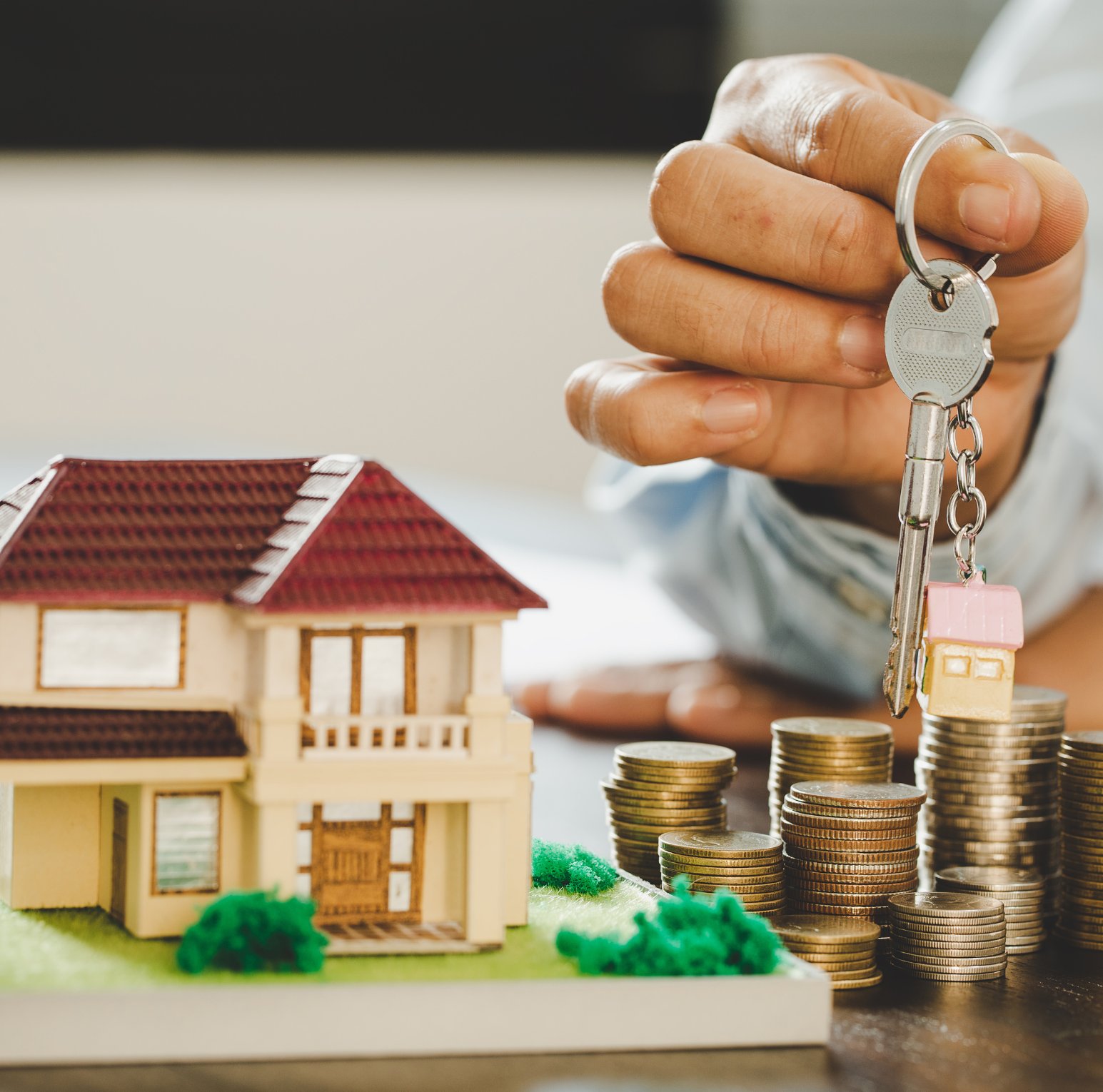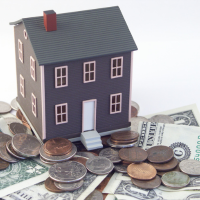
The choice between purchasing a home and renting one is a crucial decision that holds immense sway over an individual’s financial stability and prosperity. While each alternative carries its own set of advantages, I hope to shed light on the multitude of benefits that come with buying a home as opposed to renting. From the invaluable opportunity to build equity to the prospect of relishing long-term financial independence, acquiring a home stands as a firm pillar for establishing a secure and prosperous future.
Beyond the financial realm, homeownership holds a range of emotional and social benefits. Owning a home provides a sense of stability and roots, fostering a feeling of belonging within a community. It offers the opportunity to establish long-lasting relationships with neighbors and become an active participant in local events and organizations. The pride and satisfaction derived from owning a home extend beyond mere financial gains, enriching one’s quality of life and overall well-being.
Homeownership can serve as a powerful tool for generational wealth and legacy. By acquiring a home, individuals lay the groundwork for their family’s future. Property ownership can be passed down through generations, creating a lasting asset that provides security and opportunities for future descendants. This aspect of homeownership enables families to establish a strong foundation, creating a legacy that extends far beyond the present. Here are a few points to consider when choosing between renting and buying…..
Building Equity
When individuals make mortgage payments, a portion of the funds goes towards reducing the principal amount owed on the loan. This gradual reduction in debt means that with each payment made, the homeowner’s ownership stake in the property increases. As the mortgage balance decreases, the gap between the property’s value and the remaining loan amount widens, resulting in a rise in equity.
The benefits of building equity extend beyond mere numerical calculations. This accumulated equity can be leveraged in various ways to support future financial endeavors. For instance, homeowners may choose to tap into their equity by refinancing their mortgage or obtaining a home equity loan or line of credit. These financial tools allow individuals to access the equity they have built and utilize it for investment opportunities, such as starting a business, purchasing additional properties, or investing in stocks or mutual funds.
mortgage or obtaining a home equity loan or line of credit. These financial tools allow individuals to access the equity they have built and utilize it for investment opportunities, such as starting a business, purchasing additional properties, or investing in stocks or mutual funds.
In addition to investment prospects, the equity built through homeownership can also be harnessed to fund important life milestones and endeavors. For instance, individuals can use their equity to finance higher education expenses for themselves or their children, providing a means to attain educational goals without incurring excessive student loan debt. This utilization of equity as a funding source for education can offer individuals greater financial flexibility and the ability to pursue career paths that align with their passions and ambitions.
Furthermore, homeownership and the equity it provides can serve as collateral for obtaining loans or securing favorable interest rates. When individuals have a substantial amount of equity built up in their home, they may be eligible for lower interest rates and more favorable loan terms when seeking additional financing, such as for home improvements or debt consolidation. This can result in significant savings over the life of the loan and enhance overall financial stability.
It is essential to recognize that building equity through homeownership vs renting a property is a long-term endeavor that requires consistency and responsible financial management. However, the rewards can be substantial. The equity accumulated in a home represents a tangible asset that can be tapped into when needed, offering a sense of security and potential for financial growth.
Stability and Control
Buying a home over renting brings a sense of stability and control that renting simply cannot match. Renters often find themselves at the mercy of landlords, subject to their decisions, policies, and potential changes in rental agreements. This uncertainty can lead to a lack of long-term security and a constant fear of potential disruptions.
In contrast, homeownership provides individuals with a sense of stability and permanence. When you own a home, you have the freedom to make decisions regarding your property without seeking approval from a landlord. You are in control of your living environment and can shape it according to your needs and preferences.
 One of the significant advantages of homeownership is the ability to personalize and modify your living space. Unlike rental properties, where restrictions on renovations and customization are common, homeowners have the liberty to tailor their home to reflect their unique style and taste. This freedom allows individuals to create a living space that truly feels like their own, fostering a deeper connection and sense of ownership.
One of the significant advantages of homeownership is the ability to personalize and modify your living space. Unlike rental properties, where restrictions on renovations and customization are common, homeowners have the liberty to tailor their home to reflect their unique style and taste. This freedom allows individuals to create a living space that truly feels like their own, fostering a deeper connection and sense of ownership.
From minor cosmetic changes to more significant renovations, homeowners have the flexibility to customize their home to suit their lifestyle. Whether it’s remodeling the kitchen to create a culinary haven, transforming a spare room into a home office or study, or updating the bathroom with modern fixtures, the ability to make these changes enhances the overall living experience.
In addition to interior modifications, homeowners also have control over the external appearance of their property. From landscaping to exterior design, individuals can create a welcoming and aesthetically pleasing environment that reflects their personal preferences. Whether it’s planting a garden, adding a patio or deck for outdoor gatherings, or implementing sustainable features such as solar panels, homeowners have the autonomy to enhance the curb appeal and functionality of their property.
This sense of control and personalization not only fosters a greater sense of satisfaction and comfort but also contributes to the emotional well-being of homeowners. Being able to shape and create a space that aligns with your vision and lifestyle can significantly enhance your overall quality of life. It provides a sense of pride and accomplishment, knowing that you have created a home that is uniquely yours.
Moreover, the ability to modify and improve your home can also have financial benefits. Well-planned renovations and upgrades can increase the value of your property over time, potentially leading to a higher resale value if you decide to sell in the future. By investing in improvements that align with market trends and buyer preferences, Buying Over Renting a home will allow you to potentially enjoy a return on their investment while enjoying the enhanced living experience in the present.
Predictable Costs
Renters frequently encounter the arduous task of dealing with unpredictable rental increases, which can pose significant challenges when it comes to budgeting and planning for the future. The uncertainty surrounding rent prices makes it difficult to forecast housing expenses accurately, often leading to financial stress and a lack of stability in one’s financial planning.
In contrast, homeownership offers a distinct advantage in terms of financial stability and predictability. With a fixed-rate mortgage, homeowners enjoy the reassurance of consistent monthly payments throughout the duration of the loan term. This means that the amount owed for principal and interest remains unchanged, regardless of fluctuations in the housing market or inflation rates.
The stability of a fixed-rate mortgage empowers homeowners to create a long-term financial plan with confidence. They can accurately forecast their housing expenses for the foreseeable future, enabling better budgeting and financial management. This predictability allows individuals to allocate their resources effectively and make informed decisions regarding other aspects of their financial lives, such as savings, investments, and long-term goals.
Moreover, the stability of fixed-rate mortgage payments provides homeowners with a sense of security and peace of mind. They don’t have to worry about sudden spikes in housing costs or the uncertainty of lease renewals. Instead, they can focus on building their financial future with the knowledge that their monthly mortgage payments will remain consistent, allowing for better control and planning.
The predictability of housing expenses also contributes to homeowners’ overall financial well-being. It facilitates the ability to save for other financial goals, such as retirement, education, or emergencies. Homeowners can allocate their resources more efficiently, taking advantage of opportunities to invest and grow their wealth with a solid understanding of their housing costs.
Additionally, the stability of fixed-rate mortgage payments can help homeowners weather economic downturns or challenging times. During periods of economic uncertainty, rental prices may fluctuate or even rise significantly, putting renters at a disadvantage. In contrast, homeowners with fixed-rate mortgages have the advantage of consistent payments, offering a level of financial stability that can act as a buffer against external economic pressures.
Tax Benefits
Homeownership comes with a host of tax benefits that can contribute to substantial savings for homeowners. These tax advantages can make owning a home an even more attractive option from a financial perspective. Two significant tax benefits associated with homeownership are the deduction of mortgage interest and property tax deductions.
One of the primary tax benefits of owning a home is the ability to deduct the interest paid on a mortgage. The interest portion of the mortgage payment is generally the largest component in the early years of the loan. This interest deduction is available for both primary residences and second homes, subject to certain limitations and requirements.
By deducting mortgage interest, homeowners can reduce their taxable income, resulting in lower tax liability. This deduction effectively reduces the overall cost of borrowing for homeowners, providing a financial advantage that can translate into significant savings. The ability to lower taxable income through mortgage interest deductions allows homeowners to retain more of their hard-earned money, effectively reducing the financial burden of homeownership.
Additionally, homeowners can benefit from property tax deductions. Property taxes are levied by local governments and vary depending on the location and assessed value of the property. The amount paid in property taxes is often deductible on federal income tax returns, providing homeowners with an additional opportunity to lower their taxable income.
Property tax deductions can significantly reduce the overall tax burden for homeowners. By deducting property taxes, homeowners can further decrease their taxable income, resulting in potential tax savings. This deduction helps offset the cost of property taxes, making homeownership more financially manageable and appealing.
It is important to note that tax laws and regulations are subject to change, and the specific tax benefits and deductions available to homeowners may vary based on individual circumstances and local tax codes. It is advisable for homeowners to consult with a tax professional or financial advisor to fully understand and maximize the tax advantages associated with homeownership.
Investment Potential
Buying a home is widely recognized as a prudent investment strategy with the potential for long-term financial growth. Real estate has historically demonstrated a tendency to appreciate in value over time, presenting homeowners with the opportunity to build wealth as their property’s worth increases.
Unlike other assets that may fluctuate in value, real estate generally experiences steady appreciation, albeit at varying rates depending on the local housing market and economic conditions. As a result, homeowners can benefit from the appreciation of their property, which adds to their overall net worth. This accumulated wealth can be a valuable asset, providing financial security and offering potential avenues for future endeavors.
Furthermore, homeownership grants individuals the flexibility to generate income through rental opportunities. Homeowners have the option to rent out their property, whether it be a portion of their home or the entire dwelling. By becoming landlords, homeowners can tap into the rental market and potentially generate rental income.
The rental income received from tenants can serve as a supplemental source of funds that can be used to cover various expenses, including mortgage payments, property maintenance, and other financial obligations. In some cases, the rental income may even be sufficient to cover the entire mortgage payment, allowing homeowners to live in the property virtually rent-free.
This investment potential offers a valuable source of passive income, providing homeowners with additional financial stability and flexibility. The rental income can be used to supplement existing income streams, contribute to savings and investments, or even fund other financial goals and aspirations.
Moreover, the ability to rent out a property provides homeowners with a level of control over their investment. They can strategically choose tenants, set rental rates, and manage the property according to their preferences and financial objectives. This control allows homeowners to actively participate in the real estate market and potentially maximize the return on their investment.
It’s important to note that successful real estate investment requires careful consideration and due diligence. Factors such as property location, market conditions, property management, and legal obligations must be taken into account. It is advisable for homeowners to thoroughly research and seek professional advice when exploring the rental market to ensure optimal financial outcomes and compliance with relevant laws and regulations.
Retirement Security
Homeownership holds a significant role in retirement planning for many individuals, offering a valuable opportunity to reduce housing expenses and establish a more secure financial future. By purchasing a home earlier in life and diligently paying off the mortgage over time, homeowners can position themselves for a more comfortable retirement by significantly reducing their housing costs.
One of the primary benefits of owning a home in retirement is the elimination or reduction of monthly mortgage payments. When individuals enter retirement with a fully paid-off mortgage, they no longer have to allocate a substantial portion of their income towards housing expenses. This reduction in housing costs frees up funds that can be allocated towards other retirement goals, such as healthcare, travel, or pursuing hobbies and passions.
By eliminating or minimizing housing expenses, homeowners can better manage their retirement income and stretch their savings further. This reduced financial burden allows individuals to maintain a higher standard of living and enjoy a more fulfilling retirement without being overly reliant on limited retirement funds.
Moreover, homeownership provides a form of stability and security during retirement. Owning a home means individuals have a place to call their own, providing a sense of comfort and familiarity. This stability can help retirees feel more secure and confident in their retirement years, knowing they have a stable and reliable housing arrangement without the uncertainties and potential fluctuations of the rental market.
Additionally, homeownership offers potential financial flexibility in retirement. Home equity, the accumulated value of a property, can be tapped into as a potential source of funding for various needs, such as medical expenses, home modifications to accommodate changing needs, or additional income through reverse mortgages or home equity loans. This access to home equity can provide retirees with additional financial options and enhance their overall financial security.
It’s worth noting that homeownership requires careful planning and consideration in retirement. Factors such as property maintenance, property taxes, and insurance costs should be accounted for in retirement budgeting. Homeowners must also evaluate their long-term housing needs and consider factors such as accessibility and proximity to essential services.
So, while renting may provide short-term flexibility, the long-term advantages of homeownership are undeniably compelling. The benefits of buying a home, such as building equity, achieving financial stability, accessing tax benefits, and embracing investment potential, offer a roadmap to long-term financial freedom. By carefully assessing personal circumstances, financial goals, and market conditions, individuals can make an informed decision that propels them towards a more secure and prosperous future. Choosing homeownership is not merely a transaction; it is a strategic step towards establishing a solid foundation for financial well-being and embracing the opportunities that come with owning a home. Whether renting or buying, I invite you to contact me today to discuss your real estate goals and how I can assist you in achieving them.

 Facebook
Facebook
 X
X
 Pinterest
Pinterest
 Copy Link
Copy Link

